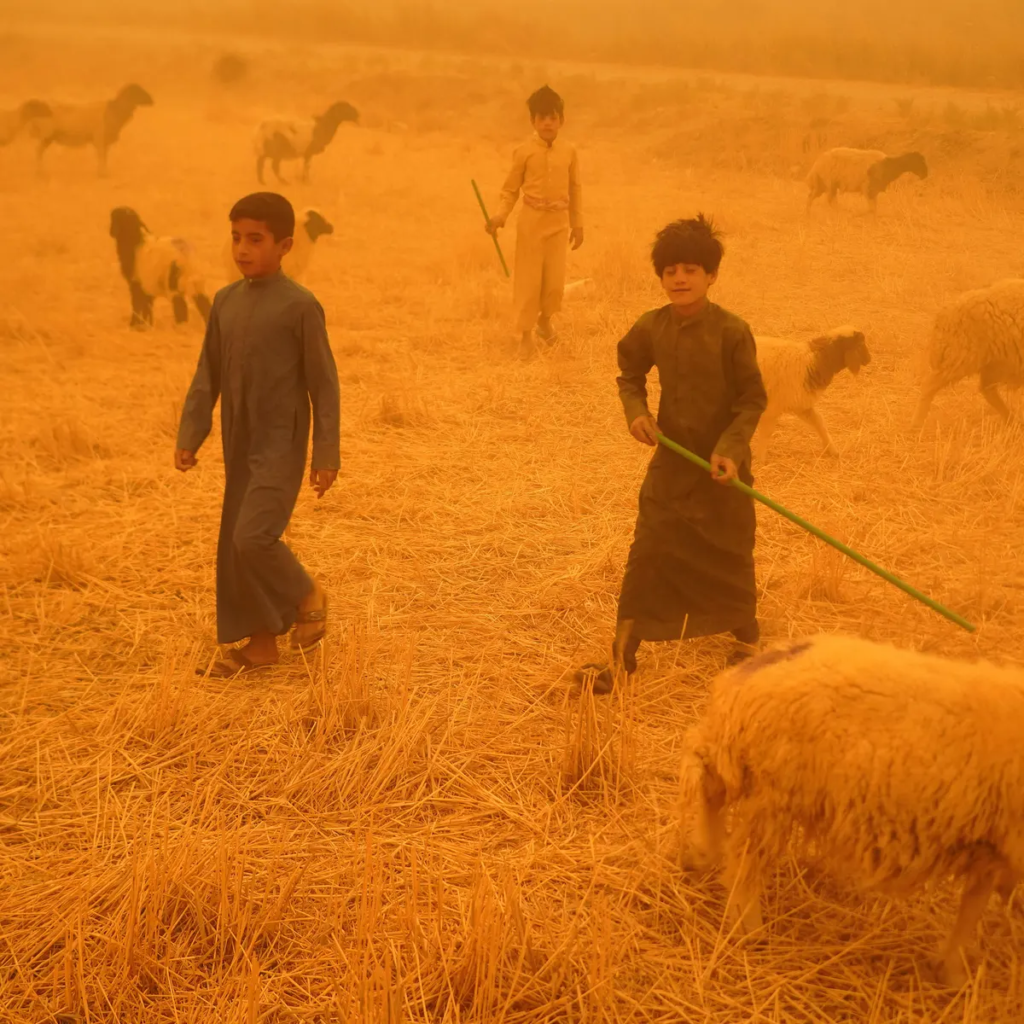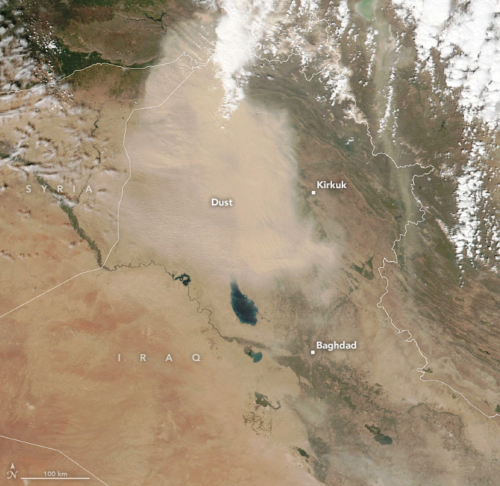Climate Change and Iraq
Iraq has been one of the countries hardest hit by climate change with the annual mean temperature increasing by 1-2 degrees Celsius between 1970 and 2004. The United Nations has found Iraq to be the fifth most vulnerable country to climate breakdown, affected by soaring temperatures, insufficient and diminishing rainfall, intensified droughts, water scarcity and flooding as well as increasingly frequent sand and dust storms. Temperatures in the country are increasing up to seven times faster than the global average, while annual rainfall is predicted to decrease by anything from 9% to 25% by 2050.
2022 saw a series of dramatic events in the first six months which brought home the reality, and dangers, of climate change to the Iraqi public. Nine dust storms swept through the country in a period of only eight weeks, leading to the closure of government offices and airports, stifling economic activity, and hospitalising thousands of people.
Climate change poses a threat to the full enjoyment of human rights, in particular for groups and persons in the most vulnerable situations. The impact of climate change also contributes to driving internal displacement and precarious migration. Women, children and young people are bearing the brunt in this worsening situation.



